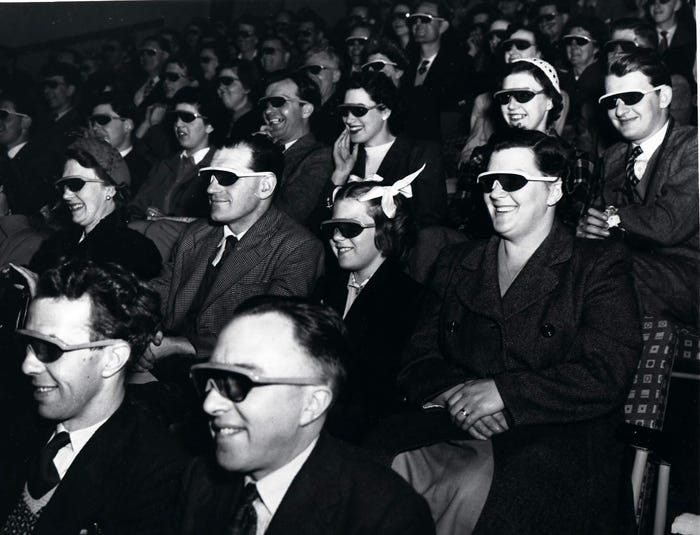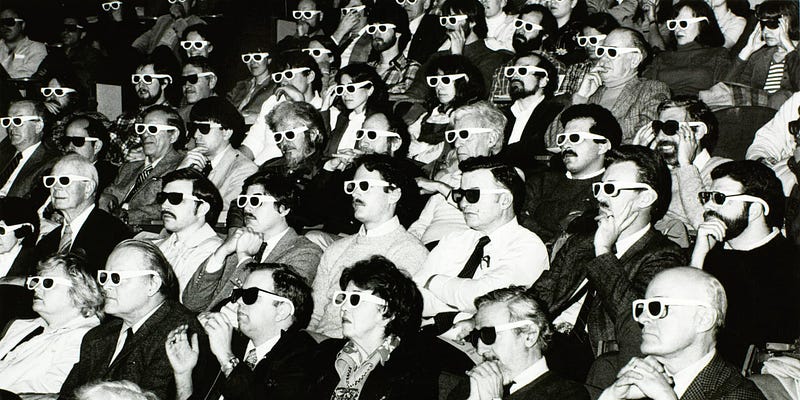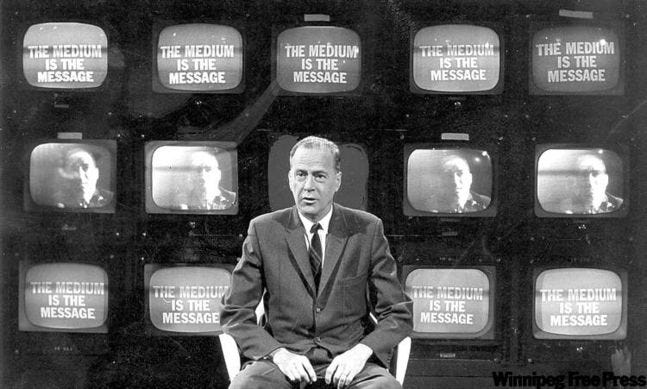The Changing Face Of Media [Bas Grasmayer]
In this piece Bas Grasmayer reflects on how a changing media landscape is working to dramatically alter how we as media consumers absorb and retain information, and what it means to live in the networked age.
_____________________________________
Guest Post by Bas Grasmayer on Medium
We’re living Marshall McLuhan’s reality — the media theorist best known for the phrases ‘the medium is the message’ and ‘global village’. McLuhan has often been called a technological determinist, believing that the tools we create end up reshaping our society and ourselves. He believed that the evolutions in the use of media, and particularly mass media, had a profound impact on the human psyche.
“Print is the technology of individualism. If men decided to modify this visual technology by an electric technology, individualism would also be modified.”
When talking to music business circles, I often express the fact that we need not bother with a phrase like ‘the digital age’ to describe our current time. We should refer to it as the networked age — in which anything that can be digitized can float freely through networks. This is a fundamental truth to understand and the industry’s inability to understand it has created (and recreated) problem after problem.
Piracy was considered the music industry’s big problem. Now, piracy is no longer the hot topic, because licensed services have managed to stop the financial leakage and the industry looks like it has stabilized. These services, and particularly streaming services, have done a great job at understanding the reality of the networked age, in which information travels freely, and have built something that acknowledges that and adds value that certain segments of music consumers are happy to pay for.
The general industry never acknowledged the reality underlying piracy, instead seeing it as an obstacle to be overcome, and after dealing with the worst of piracy it has set its sights on something new: the streaming services. Yes, streaming royalties are low, because the real price of accessing content in the age of networks is zero. These services have figured out clever ways to inflate this price and now they’re under pressure. In our networked age, access to content was never the problem, and many have been suckered into thinking that if this problem can be solved, all financial woes will be behind us. Dead wrong.

Media changes us. We all grew up in the age of mass media and millennials are growing up in a world of connected mass media. This has significant effects on our psychology. One study uncovered that we’re not bothering to remember facts extensively if we know we can retrieve this information with a simple search. This doesn’t just go for encyclopedic information, but also for details of our personal lives.
There’s discussion about a phenomenon called the ‘filter bubble’, a theory which states that the internet and internet communities allow people to ‘unsubscribe’ from any type of information that they don’t agree with and thus live in a digital world which feeds back confirmation. The filter bubble is disputed, but despite that, people suffering from psychosis are finding help in online communities that offer alternative explanations to what psychiatrists would say: yes, the CIA is gang stalking you.
Everywhere we go, there’s an information layer that we’re acutely aware of. We know that we can retrieve information about our surroundings whenever we need it. When something interesting happens to us, or we see something worth taking a picture of, many of us will instantly consider the value of sharing it to the web. Even when we’re offline, we’re online.

- The Google effect: instead of remembering specific new knowledge, we remember how to retrieve it.
- The Instagram effect: looking at the world around us from the perspective of sharing.
- The Facebook effect: staying up-to-date with social connections without necessitating interaction.
- The Amazon effect: entering the information layer while out shopping, to get more information about products and price comparisons.
In the next few years, a new generation of changes is going to drastically increase the reach of our connected reality and its information layer. Developments like artificial intelligence, virtual and augmented reality are going to change the way we communicate, create, behave, interact, and interface with the world around us.
These changes happen rapidly and are the result of human design choices. The effects of these design choices reverberate far beyond its system or user interface. It is completely pointless to think of how we can translate yesterday’s reality into today’s world. Not only do you get to the present reality a day late, but you’re there with yesterday’s mentality while people are already done designing tomorrow.
If you want to be a relevant player in the music business, or any business for that matter, you have to understand intuitively the way our networked reality influences the everyday perception and behaviour of the members of our societies. There will be things about it that you’ll like, and things you won’t like.
The question is: understanding and utilizing our networked reality, how do we design a better tomorrow?

Written for my weekly newsletter MUSIC x TECH x FUTURE. If you enjoyed reading this, please consider sharing and subscribing.
Bas Grasmayer: Digital strategist for the music business. Dutch serial expat: previously Sofia, Istanbul, Moscow. I like writing about travel, culture, and our world’s future.